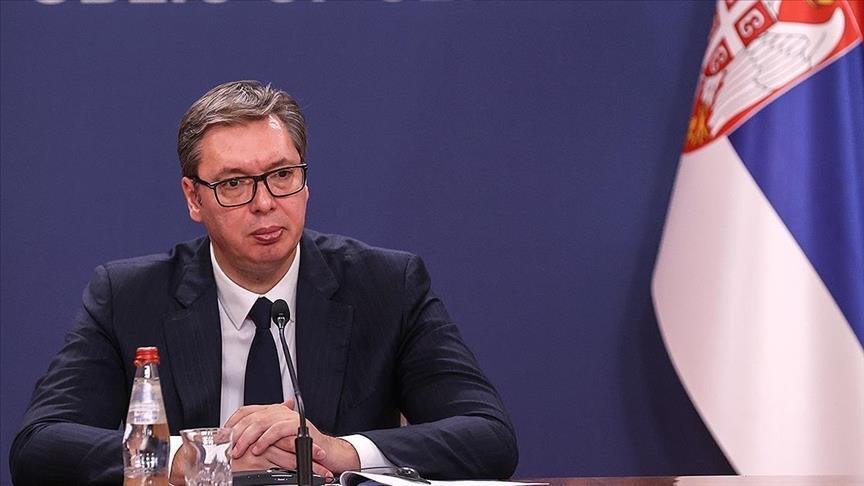President Aleksandar Vucic said Saturday that Serbia is working on new oil storage facilities and plans to construct a new oil pipeline to Hungary to tackle the global energy crisis,.
Vucic’s remarks came in an address to the nation where he said Serbia is also planning to connect to the Trans Adriatic Pipeline (TAP) and the Trans-Anatolian (TANAP) gas pipelines
He said Serbia is working on new oil storage facilities and there are two offers.
”One of which is from the British Vitol for 400 to 500,000 tons, and the other from a consortium of our oilmen for 200,000 tons. The British Vitol is asking for special conditions for arbitration, and the consortium of our oilmen offers to build a warehouse of 200,000 tons,” he said.
Vucic said earlier this week that Serbia has warehouses filled with close to 380 million cubic meters of gas in Hungary.
Serbia purchased an additional 500 million cubic meters (17.6 billion cubic feet) of gas in July from two Hungarian companies for €250 million ($252 million).
In May, Hungary announced it would allow Serbia to store natural gas in its storage facilities for the winter.
– New oil pipeline to Hungary
Vucic also announced the construction of a new oil pipeline to Hungary.
”In accordance with the agreement made with the Hungarian Prime Minister (Viktor) Orban, will build an oil pipeline to the Hungarian town of Algyo with a length of up to 128 kilometers (80 miles), so that Serbia will get another direction of supply and the possibility to collect what is more favorable for her,” said Vucic.
He said the pipeline could cost up to €100 million ($97 million).
”We currently have the largest gas reserves in the history of Serbia,” said Vucic.
– Serbia connecting to Trans Adriatic Pipeline (TAP) and Trans-Anatolian (TANAP) gas pipeline
Vucic said he expects Azerbaijan President Ilham Aliyev to visit Serbia by the end of the year to discuss Serbia’s connection to the TAP or the TANAP gas pipelines.
‘That is important to us because from that side we can also get hold of liquid gas from the Greek city of Alexandroupoli and we can also cover everything that we lack from the contract with the Russians,” he said.
Serbia currently has the lowest price for electricity in the region and a deal could keep rates steady and prevent an increase in prices.
The price for Serbian households is $0.086 cents per kilowatt hour, while in Bosnia Herzegovina it is $0.087.
In Albania it is up to $0.097, in Montenegro $0.105, in Croatia $0.148, and in Rome $0.545, according to Vucic.

